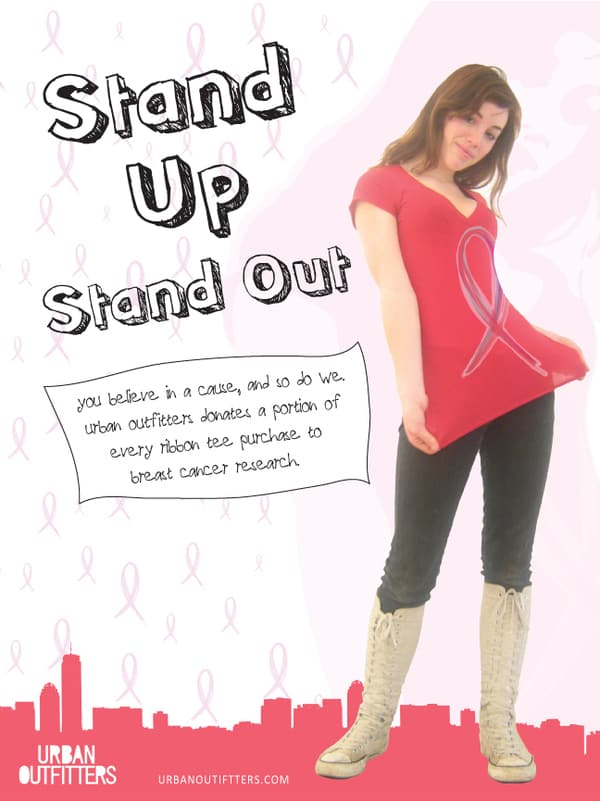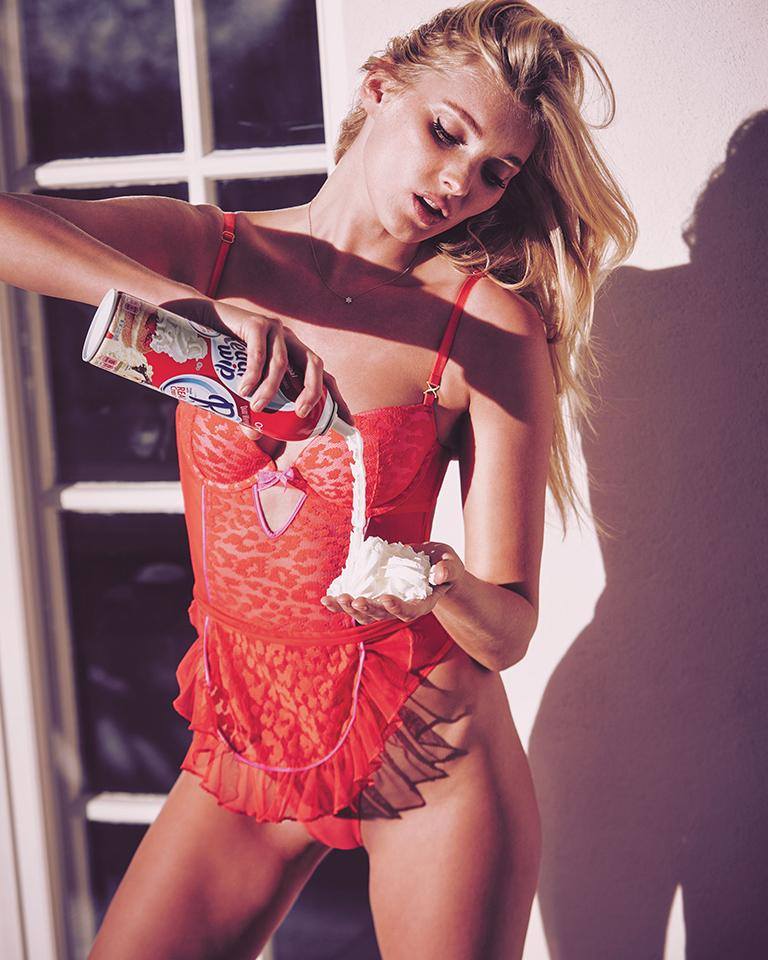Here’s all you need to know about the worst fast fashion brands in the world!
By Amma Aburam
We’ve all heard the solid arguments against fast fashion brands like H&M, Zara and Mango: they create environmental crises by offering fashion that’s so cheap, it’s practically disposable. The reason that fashion can be had for such a low cost is because the garment workers making it are paid a pittance.
But guess what? The likes of Zara have been knocked off their perches by newer online brands that can design a product and have it on sale in as little as a week, according to research by Fung Global Retail & Technology.
Ok, sure – the big, bad high street ‘wolves’, H&M, Zara and Mango, are pretty bad, too. However, due to public pressure, they’ve tried to clean up their acts with green initiatives like Zara’s “Join Life” sustainable collection or H&M’s conscious collections – and let’s not forget Mango’s rather stunning sustainable line, ‘Committed’.
These efforts cannot be completely overlooked, and there are far more steps these retailers have taken to be more sustainable, such as instigating clothing recycling programs, eliminating fur, ensuring all cosmetics are not tested on animals, and more.
The Worst Of The Worst
The truth is, the worst fast fashion brands couldn’t care less about ethics. They’re using social media and influencers like the Jenner and Hadid sisters to keep on top of trends and they’ve streamlined their supply chains and moved production closer to key markets, allowing them to fast forward the design and manufacturing process.
But the consequences of this acceleration of what is already fast fashion are disastrous – think further ecological destruction, even lower wages for workers, animal cruelty, and more mindless consumerism, now available 24/7 at the click of a mouse. Here’s what you need to know about the nastier fast fashion brands – and what you can do to slow them down.
What You Need To Know: The Worst Fast Fashion Brands
1. Boohoo should be booed
Boohoo may look pretty on the billboards, but it’s a whole other story behind the scenes. The brand has had staggering growth in the past few years, especially after it bought up fast fashion retailers PrettyLittleThing and Nasty gal.
Many of the brand’s labels state their products are made in the UK or EU, which is usually an indication of ethical labor practices, given the EU’s minimum wage and other labour protection laws. But as Channel 4’s investigative program, Dispatches, revealed, Boohoo is one of four fashion brands producing clothing in UK based sweatshops, where workers are paid far less than the minimum wage. The brand claimed it was “unaware of that situation”. Hmm, they may want to check their employee’s pay stubs, then?
Employees also complained of horrid working conditions. They revealed that they would be reprimanded for being 1 minute late, checking the time, or even smiling. After three such ‘strikes’, they were fired. Boohoo denies such a policy, but several disgruntled employees have come forth to state their cases against the company.
2. Don’t be Missguided
Missguided was another brand busted on Dispatches for underpaying British workers in sweatshops. But that’s not all – check this out: a Sky News investigation revealed that this fast fashion brand sells what it calls ‘faux fur’ – but there’s actually real fur from four types of animals – including cats – in that material!
According to Claire Bass, executive director of Humane Society International, real fur is often sold by brands like Missguided as faux fur in order to give the product a more ‘realistic’ look. The brand denies knowledge of the use of fur and says they have a fur-free policy – but they’ve been caught using real fur in allegedly faux fur products more than once.
Not surprising that Missguided is one of many fast fashion brands with no CSR or sustainability section at all on their website. All they seem to care about is selling, selling, selling. As Nitin Passi, founder and CEO of Missguided told The Guardian, “I like to say we’re the quickest. If [the high-street retailers] are fast fashion, we’re rapid fashion….we update our site once a day with new stock, but in my eyes, we should be updating it every hour.” Oh, that would be great for the planet, wouldn’t it?

3. Never Forever 21
In 1984, the mega American brand Forever 21 was launched in Los Angeles, offering the cheapest of cheap clothing – none of which, as far as I could see on a visit to the shop, was made from anything that could remotely be called ‘natural’ fibres.
This is one of the worst fast fashion brands for using cheap fabrics. But nasty petrol-based textiles isn’t the only reason Forever21 should be avoided like the plague: the brand refused to sign the Bangladesh Accord, which ensures garment workers’ safety and rights, but it gets far worse:
- In 2012, five former minimum-wage high school employees filed a class-action lawsuit claiming that the company failed to pay them for hours worked, forcing them to work off the clock and refusing lunch breaks.
- According to the International Labor Rights Forum, Forever 21 did not join retailers like Gap Inc., Levi Strauss & Co., American Eagle Outfitters and many other companies in deciding not to buy cotton from labour abusing Uzbekistan-based factories.
- In 2016, the U.S. Department of Labor reported that the brand’s clothing is being produced in sweatshop-like conditions by workers in Los Angeles.
- The company has been sued by at least 50 designers for copyright violation – most recently was Adidas, who claimed Forever 21 was selling fake Adidas shoes.
- They were also sued by the United States Department of Labor for ignoring a subpoena requesting information in regards to how much its suppliers pay East Asia and Latin American immigrant workers.
- In 2011, the company had to pay $1.03 million after the Center for Environmental Health discovered Forever 21 was selling jewellery containing the toxic metal cadmium.
And that’s just the tip of the iceberg! Could this be fashion’s most toxic brand?

4. Out with Urban Outfitters
It’s cool, it’s trendy, and…it’s bad. It was revealed that not only were American workers not being paid a living wage, but they were also found to be asking workers to work for free on the weekends!
If that’s happening in a country with pretty strict regulations, we can only imagine how Urban Outfitters treat their workers overseas! What’s more the shop still uses synthetic fabrics in the vast majority of their offerings, and makes no notable efforts to reduce their CO2 emissions or to better manage their waste and water usage.
The fact that they donate a percentage of sales to the Pink Ribbon campaign just makes things even worse! If you’re not aware of this scam, please click this link to get the details.

5. Victoria’s Secret is out
Oh, this is another one of the worst fast fashion brands, for many reasons.
First up, there’s the obvious sexism. The ‘Angels’ basically sell clothing by selling sex. The models often spoke of how they would spend weeks, or even months, to get ‘in shape’ for the gala VS shows. While they were once quite spectacular, they ended up descending into a kind of female exploitation aimed at guys, not their core customers (that would be women, folks). This pic below, from their Facebook page, illustrates why many women have gone off the brand.
But more importantly, the brand also exploits workers, badly! Not only do they use literal slave labour in the US by forcing convicts in prisons to make their clothing, but they also treat overseas workers appallingly.
One report stated the following on VS’s production facilities in Jordan:
The Victoria’s Secret workers toil 14 to 15 hours a day, from 7:00 a.m. to 9:00 or 10:00 p.m., seven days a week, receiving on average one day off every three or four months. All overtime is mandatory, and workers are routinely at the factory 98 to 105 hours a week while toiling 89 to 96 hours. Treatment is very rough, as managers and supervisors scream at the foreign guest workers to move faster to complete their high production goals.
Workers who fall behind on their production goals, or who make even a minor error, can be slapped and beaten. Despite being forced to work five or more overtime hours a day, the workers are routinely shortchanged on their legal overtime pay, being cheated of up to $18.48 each week in wages due them. While this might not seem like a great deal of money, to these poor workers it is the equivalent of losing three regular days’ wages each week.
Workers are allowed just 3.3 minutes to sew each $14 Victoria’s Secret women’s bikini, for which they are paid four cents. The workers’ wages amount to less than 3/10ths of one percent of the $14 retail price of the Victoria’s Secret bikini
And to add to the long list of reasons to avoid Victoria’s Secret, let’s not fail to mention that the brand is not transparent about its product processes; uses nasty synthetic materials in virtually ALL of its garments, and its owner, Les Wexner, (who also owns Bed, Bath and Beyond) had a very, very close relationship with pedophile and sex trafficker Jeffrey Epstein, who also happened to have power of attorney over Wexner’s bank accounts.
Does it get any worse?

6. Not so brilliant: Shein & Romwe
We all know that China has one of the most disgusting human rights records in the world. So it’s no surprise to learn that China-based fashion wholesalers Romwe and Shein not only treat and pay their workers terribly, but also use child labour, too!
These cheap shops are some of the worst fast fashion retailers in the world. Their materials are crappy, petroleum-based synthetics; the structure of the garments is pathetic (they easily fall apart.) Since their goods come from China, they take ages to arrive, and when they do, the items often look nothing like they do online, or are the wrong size or colour. Returns are not easy. Scams are high on both of these sites. Just look at some of the comments about their site, like this one, for example:
My returns link code doesn’t work and there is no customer service except a robot who has no answer for the link not working or anyone to actually talk to. There is no options but to keep these cheap crappy made horrible clothes.
To promote their brands, these two stores send bags of their best clothing models to fashion influencers and bloggers to promote in ‘haul’ videos. We’re definitely not fans of such promotions, since they not only glorify excessive consumption, but they also show fast fashion brands like these in a positive light (that’s what they’re paid to do!)
Yes, the clothes here are inexpensive. But they are also the very definition of fast fashion: cheap looking, exploitative, unethical, flimsy, designed to last for a few wears only, before going in to landfill.. It’s brands like this that give fashion a bad name. Avoid at all costs.

Challenges and solutions
So, what can be done about these unethical online fashion giants? Well, firstly, we consumers need to make better decisions. These retailers have grown enormously because people buy their crap. That has to stop – making a purchase from these brands is a direct endorsement for environmental destruction and human misery.
Secondly, we need to spread the word. Share this article! And let’s pressure influencers like Bella and Gigi Hadid, Kylie and Kendall Jenner, or Alexis Ren to stop working for these agents of misery. It’s easy to tweet them or to leave comments on their Insta feeds (just click the links above) to let them know how damaging their ‘influence’ really is.
Thirdly, organisations like the Sustainable Apparel Coalition (SAC) should pressure these retailers to join their ranks, and if they refuse, SAC should continuously shine a light on their questionable practices. Even though the organisation’s Higg Index has proven to be a challenge in truly monitoring the practices of its members, SAC still provides an innovative means of delving into the supply chains of various brands across many industries.
Sure, it may be a bit of a challenge to get the worst fast fashion brands to be more fair, honest and conscious about what goes on within their supply chains. But if the big high street brands can make slow but steady improvements, so can they.
Main image: Missguided. Second image: Forever21. All other images from the brands’ sites, except Victoria’s Secret, which is from the brand’s Facebook page
- 10 Seriously Sustainable Luxury Fashion Brands - April 9, 2025
- Inspiring Afro Vegans On Instagram To Follow Now - November 21, 2024
- 10 Natural Body Creams For Black Skin - October 18, 2024



I’m so glad to see this article! I’ve been trying to avoid fast fashion for a while now, and this list is a great resource.
We are so glad it was useful, Riya!
Pingback: Opinion: The hazards of quick vogue | Entertainment Magazine
Pingback: Opinion: The risks of quick trend - Fashion Style Magazine
Ironically, I just made a purchase from SHEIN without knowing all this. Now I do. But I’m unable to cancel 🙁 May just return it as soon as it arrives. Le sigh.
Send it back, with a note about why! 😉
not all of my fav shops lmfao??
mango is not even cheap? how do you put it in the same category as zara and h&m? I have very rarely seen a piece of clothing from mango costing less than 30 dollars, if I do find one it’s because it is on sale or a very basic and simple item, while zara or h&m clothes on sale can cost you 6 dollars!